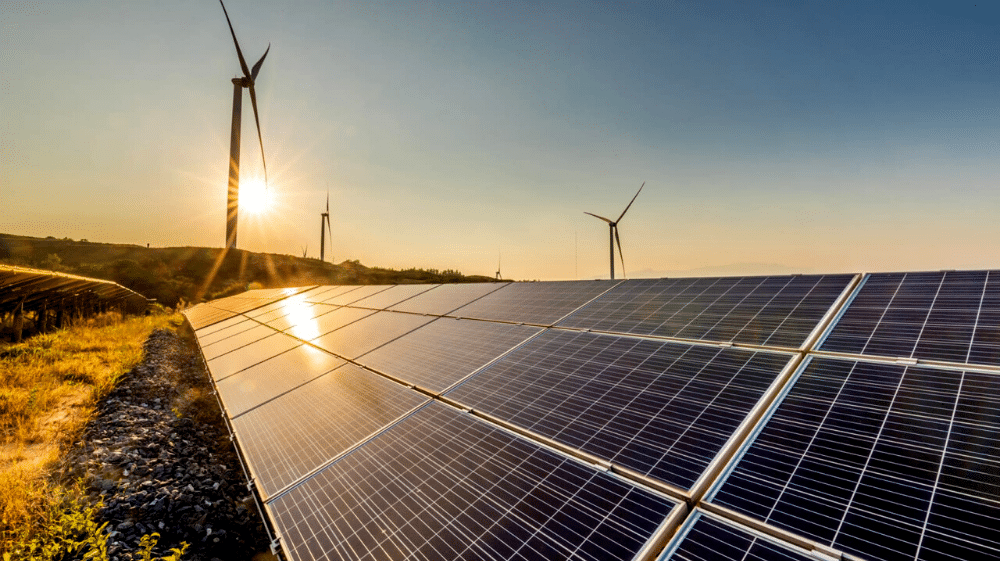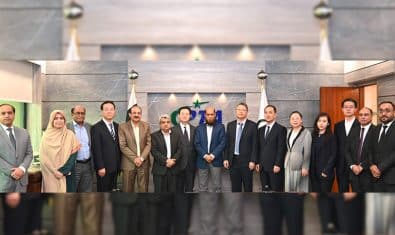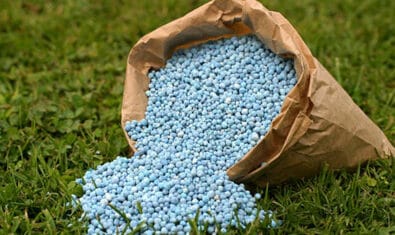The new alternative and renewable energy policy-2020 proposed that the Alternative Energy Development Board (AEDB) will ask the Federal Board of Revenue (FBR) and the Engineering Development Board (EDB) to withdraw the import duty exemptions on alternative and renewable energy technology (ARET) based consumer items which the local industry is capable of manufacturing.
The government has issued a new alternative and renewable energy policy-2020 which is in the portfolio of policies comprising the National Electricity Policy and proposed tariff rationalization at the import stage for the local industry.
The new alternative and renewable energy policy-2020 proposed that plant and machinery imported by an existing or new industrial concern shall be free of import duties and taxes where the plant and machinery is imported for the manufacture of alternative and renewable energy technology (ARET) end-consumer items or components.
According to the new policy, the machinery and equipment imported by an “industrial concern” is subject to 3%, 11%, and 15% customs duty with concomitant sales tax and advance income tax, when the import of the finished ARET items in several cases is exempt from duties. Solar PV cell manufacturing is the only exception where there is no duty on the manufacturing equipment. This discriminates against the manufacture of AREPs or ARET end consumer items or components thereof. This policy, therefore, stipulates that plant and machinery imported by an existing or new industrial concern shall be free of import duties and taxes where the plant and machinery is imported for manufacture of AREPs or ARET end-consumer items or components thereof.
The salient features of the ARE Policy 2020 include a variety of investment options for tapping different ARE resources for on-grid and off-grid applications as well as encouraging consumer-driven applications and initiatives. Attractive policy instruments supplement GOP’s open-door initiatives for private investment in ARE sector in Pakistan as it is envisaged to contribute its share in strengthening and improving the power supply position of the country and help to fuel rapid and environmentally sustainable economic growth. The measures introduced in the ARE Policy 2020 are expected to set the requisite processes in place so that ARE is fully mainstreamed and integrated within the country’s energy planning as well as the country’s economic and social development for the eventual benefit of the people of Pakistan. GOP is determined to pursue the stated policy objectives and strategies with the participation and collaboration of the private sector. The goal is to continue the envisaged sustained transition towards greater use of indigenous, clean, and abundant ARE resources, which must be tapped in a meaningful and timely fashion and utilized towards the social and economic advancement to assist the country’s overall development strategy.
The policy has also specified tax incentives for the AREP i.e. project for electricity generation using ARETs.
The incentives for AREPs included exemption from corporate income tax; exemption from import duties; repatriation of dividends and disinvestment proceeds; 100% foreign equity permitted; foreign currency accounts permitted; protection against change in the law; robust market-tested contractual framework; protection against expropriation; international dispute resolution and project land made available by the provinces.
Given some anomalies in the prevalent import tariff structure that disincentivize local manufacturing, the incentive remains mute for local industries to invest in ARET manufacturing and for foreign ARET manufacturers to move to Pakistan, alone or in joint ventures with local companies. These anomalies are to be addressed if the local industry is to march in lock-step with the ARET revolution the country and the world is experiencing, the policy recommended.
A significant number of consumer items based on ARET continues to be importable free of duties. While it served the market demand for some time, this continuing exemption has not helped the nascent local industry. It is time to level the playing field between local and foreign manufacturers of such items by withdrawing the exemptions in a phased manner. Local industry in collaboration with foreign manufacturers has the capacity to respond swiftly to like incentives. A successful example is declaring LED lights as locally manufactured items in 2017, which led to some foreign manufacturers setting up manufacturing of LEDs in Pakistan in a short time frame.
The Alternative Energy Development Board (AEDB) will therefore move the Federal Board of Revenue (FBR) and the Engineering Development Board (EDB) to withdraw the import duty exemptions on ARET based consumer items which the local industry is capable of manufacturing or undertakes to manufacture and such exemptions will be withdrawn. To ascertain this, AEDB will engage with the respective Chambers of Commerce and Industry. It may be kept in view that, this being the NEP, to the extent the items under consideration do not relate to sub-components of RE generation facilities, the matter may require a parallel initiative with the Ministry of Industries and Production/EDB, in which case AEDB’s intervention would be undertaken under the AEDB Act and not under this new policy, it added.
The AEDB will maintain ongoing oversight of import duty regime and will take swift interventions with the Federal Government and the competent authorities where the local manufacturing industry is placed at a disadvantage vis-à-vis imports, noting always the balance to be struck between the lead times the local industry would require to respond to the demand and the imperative for rolling capacity additions of ARETs in the national energy mix to meet the targets set in this Policy. It is expected that the RE (electricity generated using alternative and renewable energy technology) targets in this Policy will yield positive outcomes for progressive capabilities of the local manufacturing industry, new policy added.


























